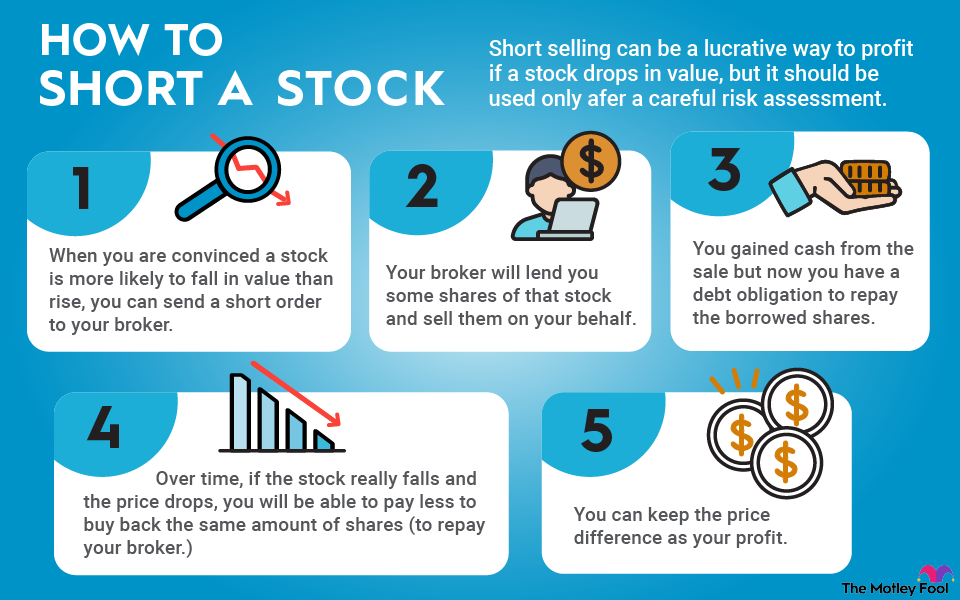Now let's say that the stock falls to $70 per share. Now you can close the short position by buying 100 shares at $70 each, which will cost you $7,000. You collected $10,000 when you initiated the position, so you're left with $3,000. That represents your profit -- again, minus any transaction costs that your broker charged you in conjunction with the sale and purchase of the shares.
What are the risks of shorting a stock?
Keep in mind that the example in the previous section is what happens if the stock does what you think it will -- declines.
The biggest risk involved with short selling is that if the stock price rises dramatically, you might have difficulty covering the losses involved. Theoretically, shorting can produce unlimited losses -- after all, there's not an upper limit to how high a stock's price can climb. Your broker won't require you to have an unlimited supply of cash to offset potential losses, but if you lose too much money, your broker can invoke a margin call -- forcing you to close your short position by buying back the shares at what could prove to be the worst possible time.
In addition, short sellers sometimes have to deal with another situation that forces them to close their positions unexpectedly. If a stock is a popular target of short sellers, it can be hard to locate shares to borrow. If the shareholder who lends the stock to the short seller wants those shares back, you'll have to cover the short -- your broker will force you to repurchase the shares before you want to.



















